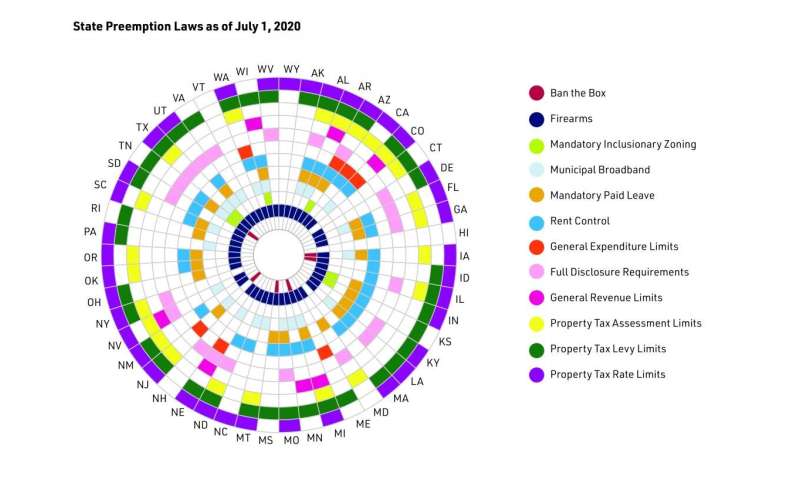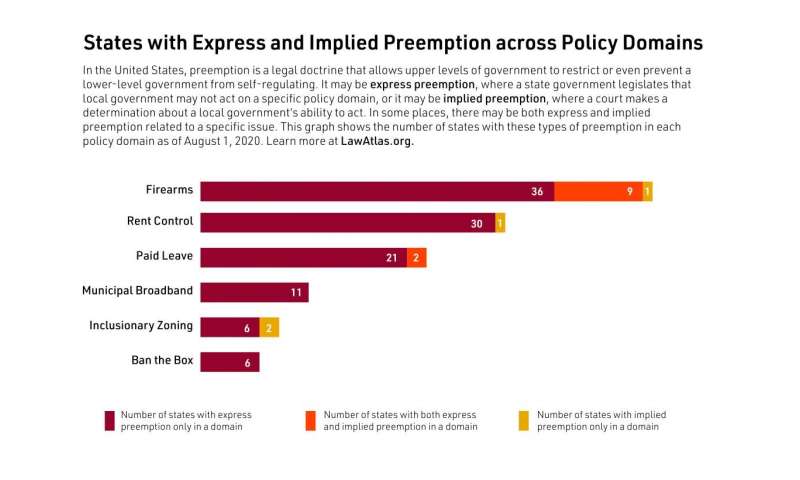New LawAtlas data show widespread preemption efforts by US states in policy domains that could improve health

Across the US, states are increasingly using preemption to stymie local advancement of public health policy strategies, according to updated data released today to LawAtlas.org by the Center for Public Health Law Research and the National League of Cities with support from the Robert Wood Johnson Foundation.
The updated data capture state preemption of local policies in 12 domains, with the most extensive reach of preemption occurring in laws related to firearms (46 states), property tax rate limits (37 states) and levy limits (36 states), rent control (31 states), and paid leave (23 states). Hawaii is the only state without preemption in any of the 12 domains.
“Cities and other local governments are attuned to the needs of their communities in ways upper levels are sometimes not,” said Brooks Rainwater, Senior Executive of the Center for City Solutions, National League of Cities. “These data are showing us that many states—particularly in some domains, like gun laws and paid leave laws—are actively preventing local governments from instating policies that are evidence-based and potentially impactful for communities’ health.”
The policy domains in this dataset include Ban the Box, firearms, mandatory inclusionary zoning, municipal broadband, mandatory paid leave, rent control, and six types of tax expenditure limitations that restrict a local government’s ability to set, assess, or levy property taxes. These include full disclosure tax requirements (also called “truth in taxation”), general revenue limits, general expenditure limits, property tax rate limits, tax assessment limits, and tax levy limits.
Preemption across these critical policy areas can exacerbate the already devastating health effects of the COVID-19 pandemic. State preemption of local government can limit access to care, affordable housing, or employment protections in the event a worker or their family member becomes ill:
- Twenty-two states regulate municipal broadband. Eleven of those states expressly preempt municipal broadband, and 11 others impose significant barriers to implementation, limiting access to the ability to more safely work from home, or access to telemedicine providers.
- There are 23 states that preempt local mandatory paid leave. In 12 of those states, the state also does not require paid leave—creating a policy vacuum where workers have no paid sick leave option available to them.
- In the 30 states that preempt rent control, only Florida and Oregon have exemptions in their laws that would make rent control available in the event of a housing shortage, a natural disaster, or through local government action or a voter referendum.

The updated data capture key features of state-level preemption laws in 50 states, from August 1, 2019 to July 1, 2020. The data capture both express preemption contained in constitutional provisions and statutes, and implied preemption identified in case law and attorneys general opinions.
Source: Read Full Article


